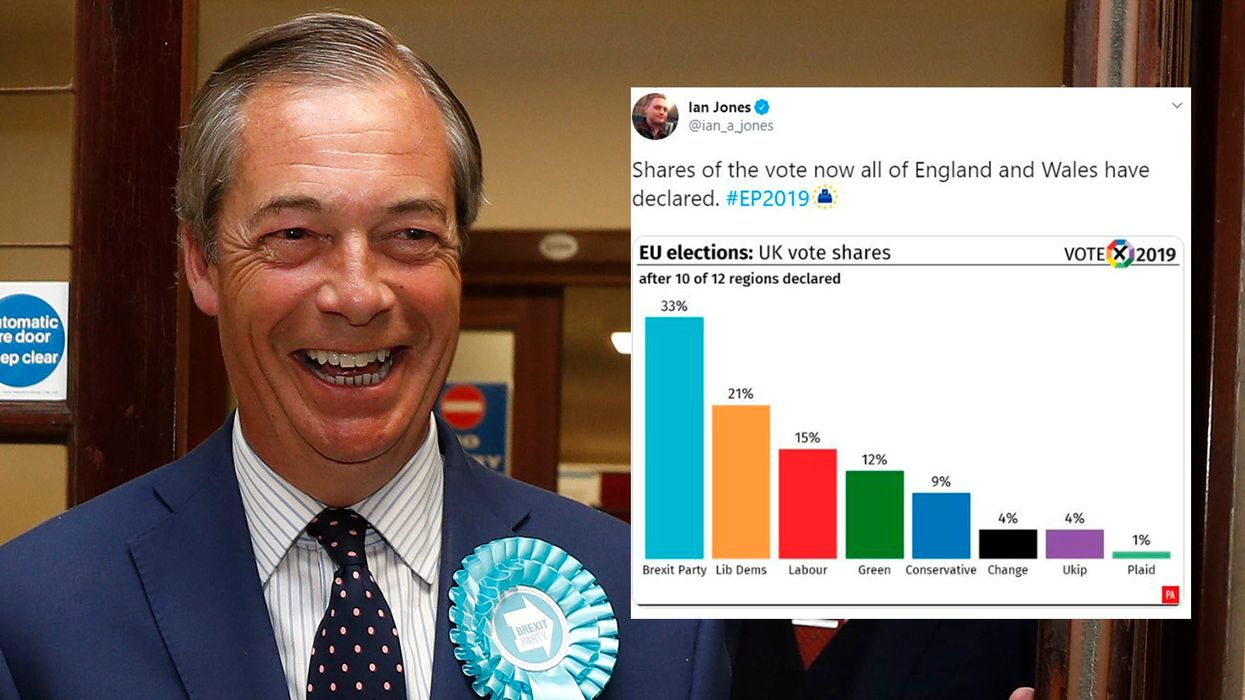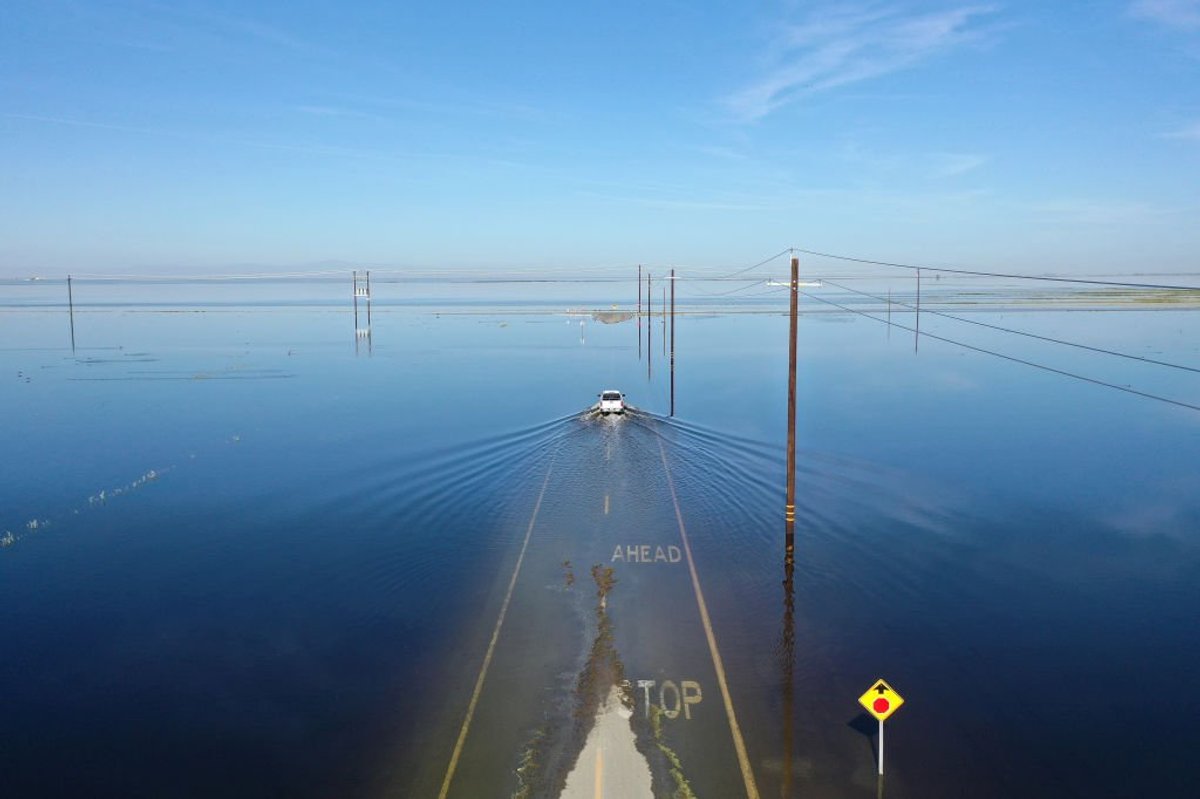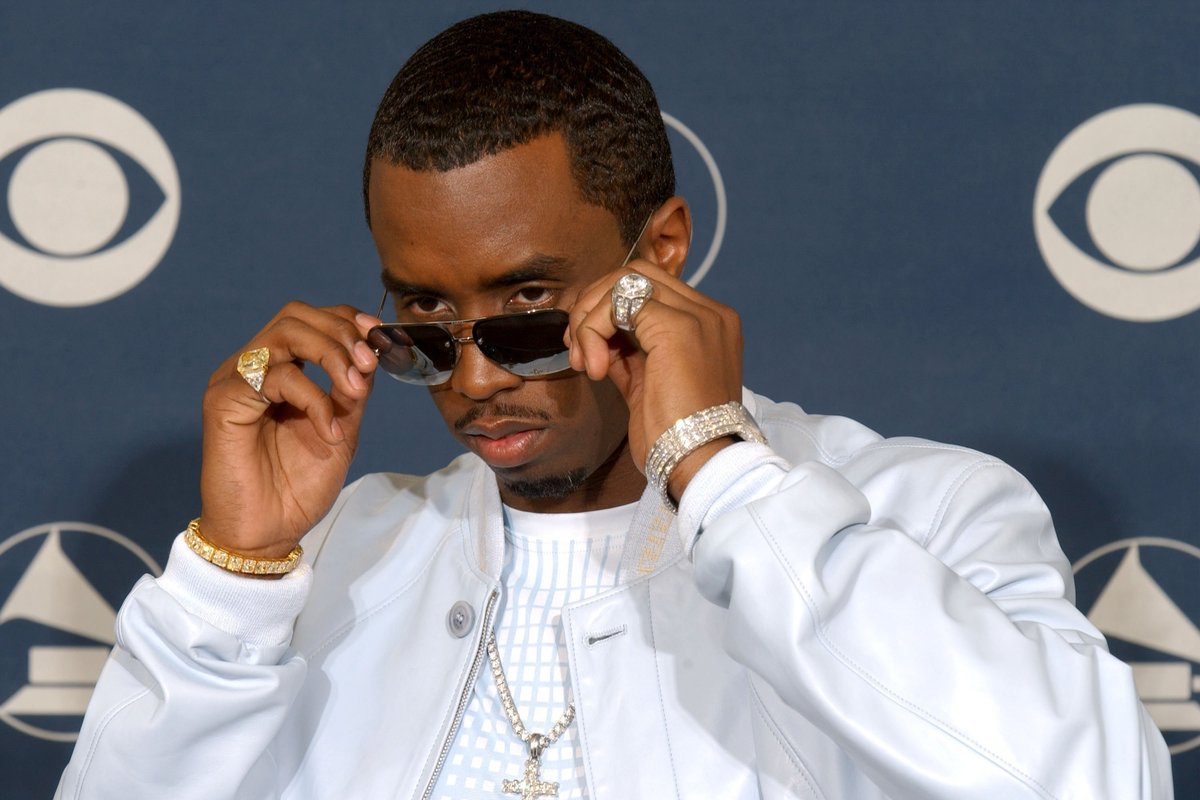Emma Snaith
May 27, 2019
After a bizarre lead-up to the European elections which were not even expected to take place in the UK saw milkshakes being hurled at a number of right-wing politicians, the results are finally in.
Across the country, the elections unfolded according to predictions with the Brexit Party winning big and the Lib Dems and the Green Party making gains. While Labour and the Conservatives suffered heavy losses.
And across Europe centrists saw their power dilute as voters instead rewarded the Greens and the far right.
Here are five things we learned from this year’s elections:
1. The Brexit Party is the undoubted winner
As expected, Nigel Farage’s Brexit Party swept to a resounding victory with 32 per cent of the vote.
The party, which was formally launched just six weeks ago, received the highest share of the vote in nine of the 10 regions in England and Wales.
It performed much better in areas that voted most heavily for Leave than it did in those places that voted most heavily for Remain.
Speaking on the Today programme, Mr Farage said:
The party didn’t even exist six weeks ago. The big simple message is that we have been badly let down by the main parties.
If we don’t leave on October 31 then you can expect to see the Brexit Party’s success last night matched in a general election.
2. Pro-Remain parties had a resurgence
But the success of the Lib Dems and Greens suggested that the UK is still as divided as ever over the issue of leaving the European Union.
The Lib Dems, which based its entire campaign around a “stop Brexit” message, came in second with 20 per cent of the vote.
The party gained 15 MEPs, up from just one at the last European Parliament election in 2014.
Lib Dem leader Sir Vince Cable said his party’s “clear, honest, unambiguous message has won us our best ever European election result, and pushed Corbyn’s Labour into third place”.
The Pro-Remain Green Party also enjoyed a successful vote and recorded its best performance since 1989, winning 12 per cent of the vote and seven seats from three in 2014.
This means the Greens finished above the Conservatives for the first time in a national election.
In total, 40 per cent backed one of the five pro-Remain parties that supported a second referendum. This total includes the votes won by the the Lib Dems, Green Party, SNP, Change UK and Plaid Cymru.
3. The Conservatives and Labour suffered heavy losses
The two main parties haemorrhaged support with Labour winning just 14 per cent of the vote, halving its share of seats to 10.
The party particularly struggled to pick up votes in areas that voted strongly for Leave in 2016, averaging less than one in ten votes in those local authorities.
And in a statement released late on Sunday night, Jeremy Corbyn hinted he could be prepared to change course after coming under pressure to fully support a second referendum.
The Conservatives dropped to just nine per cent of the vote, meaning the party held just three seats. It is the worst national election result for the party in its history.
The Party performed worst in areas where voters heavily backed Remain in the referendum and did not come top in any council areas
4. Across Europe the far right didn’t reach expectations
Despite a strong showing across the continent, the widely predicted far-right surge did not materialise.
The Nationalist bloc increased their seats in the 751-seat chamber in Strasbourg to 58, but this still fell short of expectations.
However, Marine Le Pen’s far-right party, a rebranding of the National Front, beat Emmanuel Macron's centrists in a close-run election in France.
5. The Greens enjoyed a wave of support across the continent
The Greens nearly doubled their vote from the last election to finish on 21 per cent, putting them ahead of the Social Democrats.
It comes after 16-year-old Swedish climate activist Greta Thunberg inspired young people across Europe to take to the streets to demand action on climate change.
The Greens did best in northern European countries and came second in the German elections behind Chancellor Angela Merkel’s CDU conservatives. The Greens also took seats in Finland and Denmark, won their first two seats in Ireland in two decades, and came third place in France’s elections.
More: Nigel Farage's Brexit Party accused of pushing subliminal messages on ballot papers
More: Dogs at polling stations are back for the European elections and they do not disappoint
Top 100
The Conversation (0)
x














